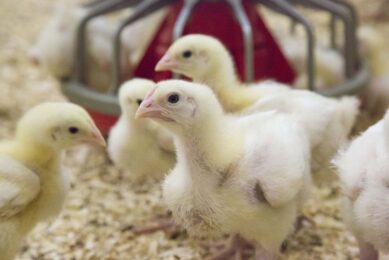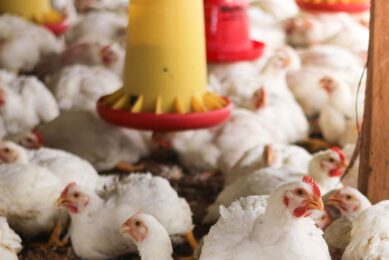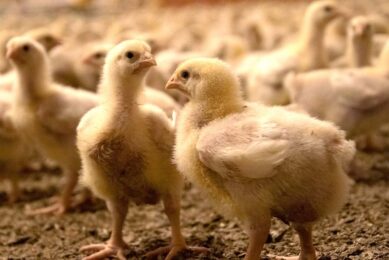Newly-hatched Chicks and Early Access to Feed
Functional development of the intestinal tract is essential for a successful poultry production.
Functional development of the intestinal tract is essential for a successful poultry production.
The small intestine of the newly-hatched chick is immature and undergoes significant morphological, biochemical, and molecular changes during the 2 week post-hatch (Reference 1).
The timing and form of nutrients supplied post-hatch is critical for development of intestines. It has been shown that early access to feed accelerates the rate of yolk utilization and enhances growth of the intestinal tract.
Usual hatchery practices result in a 24-72 hr transition between hatching and placing of chicks on the farm. The delayed access to feed can lead to a depression in intestinal function which may negatively affect subsequent performance of birds (Reference 1).
Studies have also shown that providing developing embryo with exogenous nutrients (In ovo feeding) may enhance intestinal tract development and lead to higher body weight in in ovo fed chicks.
- What are your practical experiences regarding early and/or delayed access to feed in newly-hatched chicks?
- Have you seen any difference(s) in consequences of delayed access to feed in summer vs. winter?
- Let’s share our experiences here.
References:
1- Uni, Z. 1999. Functional development of the small intestine in domestic birds: cellular and molecular aspects. Avian Poult. Biol. Rev. 10: 167-179.
Join 31,000+ subscribers
Subscribe to our newsletter to stay updated about all the need-to-know content in the poultry sector, three times a week. Beheer
Beheer








 WP Admin
WP Admin  Bewerk bericht
Bewerk bericht